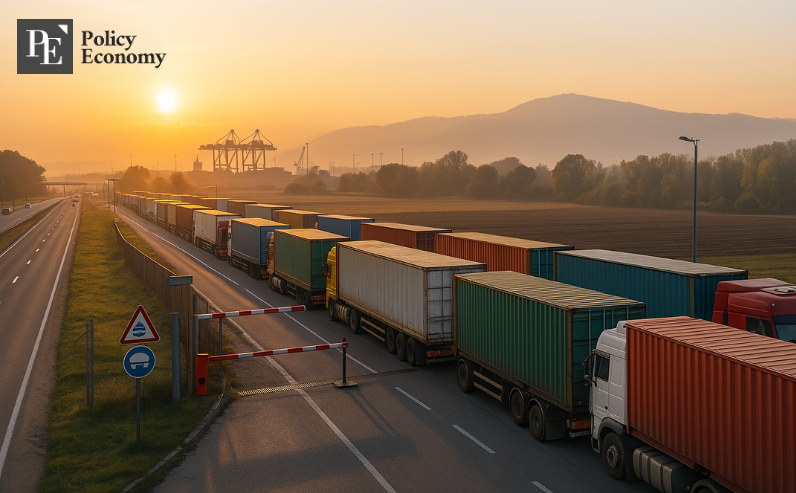“Escaping the Burden of Labor and Electricity Costs” Southeast Asia Emerges as a Key Player in Supply Chain Realignment
Input
Modified
Evolution of Southeast Asia as the ‘Factory of the World’ Supply Chains Reshaped Amid U.S. Containment of China Southeast Asia Gains Traction with Lower Geopolitical Risk

Major corporations are accelerating efforts to diversify supply chains by designating Southeast Asian nations—particularly Malaysia, Indonesia, and Vietnam—as new manufacturing and export bases. This trend is unfolding against the backdrop of tighter U.S. restrictions on China, tax incentives under the Inflation Reduction Act (IRA), and the broader reconfiguration of global production hubs triggered by U.S.-China tensions. With cost-competitive production, foreign investment–friendly policies, and vast domestic consumer markets, Southeast Asia is positioning itself as an alternative supply chain hub to China.
Korean Advanced Industries Gain Foothold
According to industry sources on the 21st, Korean printed circuit board manufacturer Simmtech recently completed construction of a high-end substrate plant in Penang, Malaysia. Penang serves as a hub for global fabless players and semiconductor packaging firms, including Intel and Micron, functioning as a strategic bridgehead for Korean mid-tier materials companies to expand in Southeast Asia. The investment amounts to approximately $740 million. With this latest development, Simmtech’s cumulative investment in Malaysia has now reached about $1.7 billion.
In the battery sector, Hyundai Motor and LG Energy Solution have established the first local battery cell plant in Karawang, Indonesia. With a total investment of $1.1 billion, the facility aims to commence mass production within the year. Of its 10 GWh annual output, the bulk will be exported to the Korean and Indian EV markets. Indonesia’s abundant nickel reserves, a critical raw material for EV batteries, also provide a strategic advantage in securing upstream resources.
Steel and chemical players are also moving swiftly. POSCO operates cold-rolled and hot-rolled plants in Vietnam to meet regional demand, while Lotte Chemical expanded its petrochemical production by acquiring Titan Chemicals in Malaysia. LS Electric has built a power equipment plant in Bac Ninh, Vietnam, targeting the region’s infrastructure needs. Vietnam, in particular, is consolidating its position as a manufacturing hub under the so-called “Vietnam Plus One” strategy, evolving beyond the long-dominant “China Plus One” paradigm in global supply chain restructuring.

SAP, Qualcomm, Nvidia Expand into Southeast Asia
Not only Korean firms but also global giants are bolstering their presence in the region. On the 7th, German software company SAP launched its second Southeast Asian R&D center in Ho Chi Minh City, Vietnam. Over the next five years, SAP plans to invest $162 million in the facility, expanding its current 200 staff to 500 by 2027.
Riding the momentum of the Fourth Industrial Revolution, SAP—best known for its ERP systems—has surged to the top of the European stock market in terms of market capitalization. It operates over 20 R&D centers worldwide, including in Germany, China, Canada, and India. In Southeast Asia, the company had previously set up an R&D center in Singapore. Simon Davies, SAP’s Asia-Pacific head, emphasized Vietnam’s rapid advancement in science, technology, and mathematics, calling the country a globally recognized talent hub. He noted that while several governments had extended invitations, Vietnam offered the most compelling proposition.
U.S. semiconductor firm Qualcomm also opened its first Southeast Asian R&D center in Vietnam this past June, focusing on AI research. Similarly, Jensen Huang, CEO of U.S. AI chip leader Nvidia, visited Vietnam in December, announcing plans to acquire Vingroup’s AI startup VinBrain and establish a local AI R&D center.
Low Labor Costs and Discounted Electricity Bolster Manufacturing Appeal
The rationale for corporate migration to Southeast Asia is straightforward: lower geopolitical risks than China, competitive labor costs, reduced trade barriers via free trade agreements (FTAs), and a young, well-educated workforce. In addition, governments are racing to offer tax breaks and regulatory incentives to attract high-tech industries.
First, the region is relatively shielded from geopolitical volatility. Vietnam, Malaysia, and Indonesia are not direct parties to the U.S.-China rivalry, making them less vulnerable to export restrictions and tariff shocks compared with China. Moreover, multilateral FTAs such as the ASEAN Free Trade Area (AFTA) and the Regional Comprehensive Economic Partnership (RCEP) have eliminated most tariffs within the bloc, keeping trade barriers minimal among ASEAN members. Recently, however, the U.S. has imposed reciprocal tariffs—roughly 46% on Vietnam, 24% on Malaysia, and 32% on Indonesia—creating additional hurdles for exports to the American market. Even so, firms maintain strong price competitiveness in intra-regional trade and exports to third markets.
Affordable labor is another key draw. Vietnam’s average monthly manufacturing wage stands at around $320, less than half of China’s level. Indonesia likewise offers labor costs 30–50% lower than Korea across major industries, a decisive advantage for labor-intensive manufacturing. Vietnam is also witnessing rapid growth in its pool of skilled workers capable of handling coding, data processing, and other advanced functions. Rising university enrollment and a high proportion of STEM majors have expanded the pool of English-proficient young professionals. These developments are enabling not just manufacturing but also R&D and IT services to be operated locally.
Equally critical is the advantage of inexpensive electricity. According to the Korea Trade-Investment Promotion Agency (KOTRA), Malaysia’s industrial electricity tariffs average about $0.07 per kWh, dipping to as low as $0.04–0.05 in certain regions. While peak rates can rise to roughly $0.13 per kWh, local firms report that state-level incentives and industrial policies mean such higher tariffs are rarely applied in practice. Indonesia’s industrial electricity prices range between $0.02 and $0.07 per kWh, among the lowest in ASEAN, while some regions in Vietnam also offer rates of $0.04–0.05 per kWh.





















